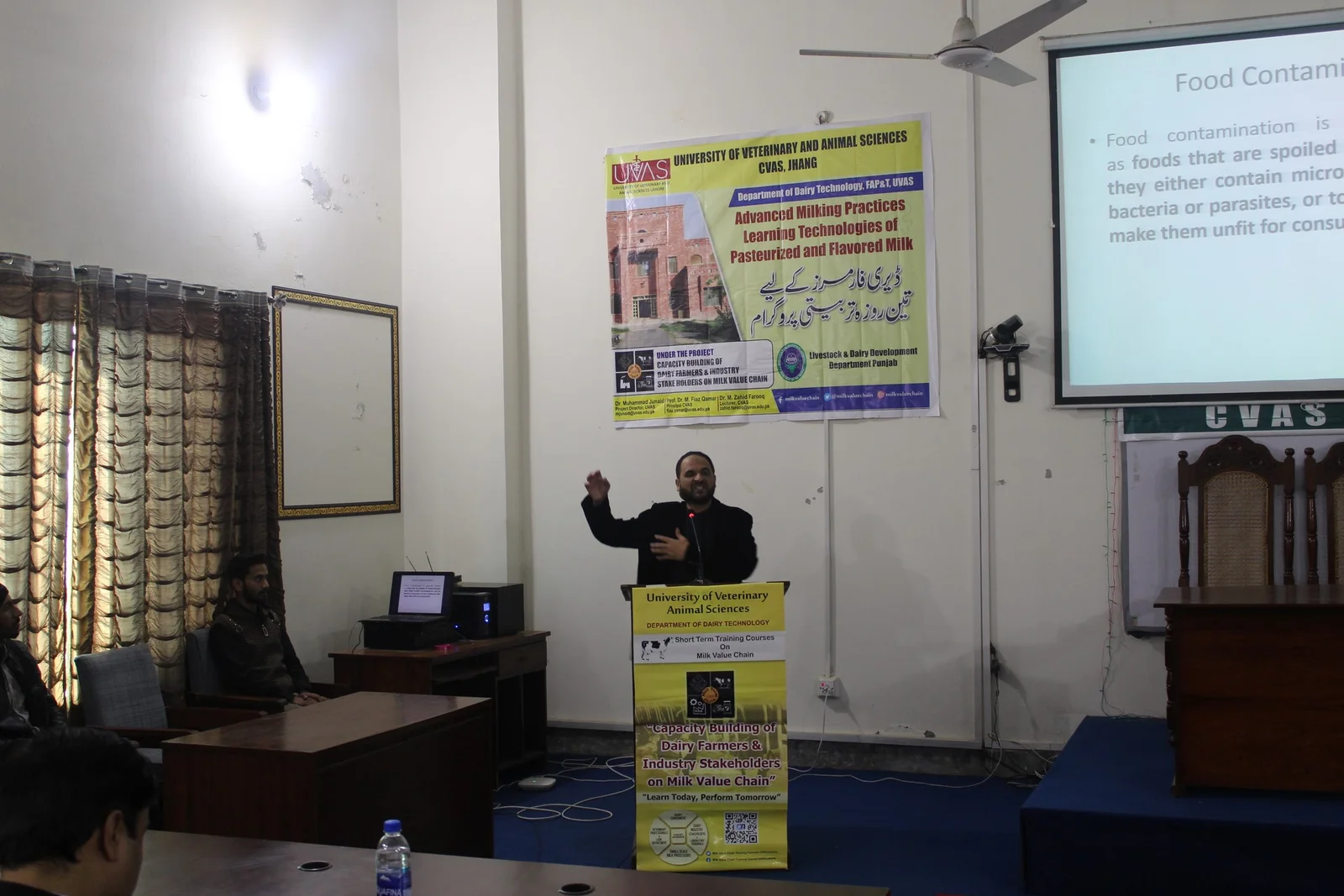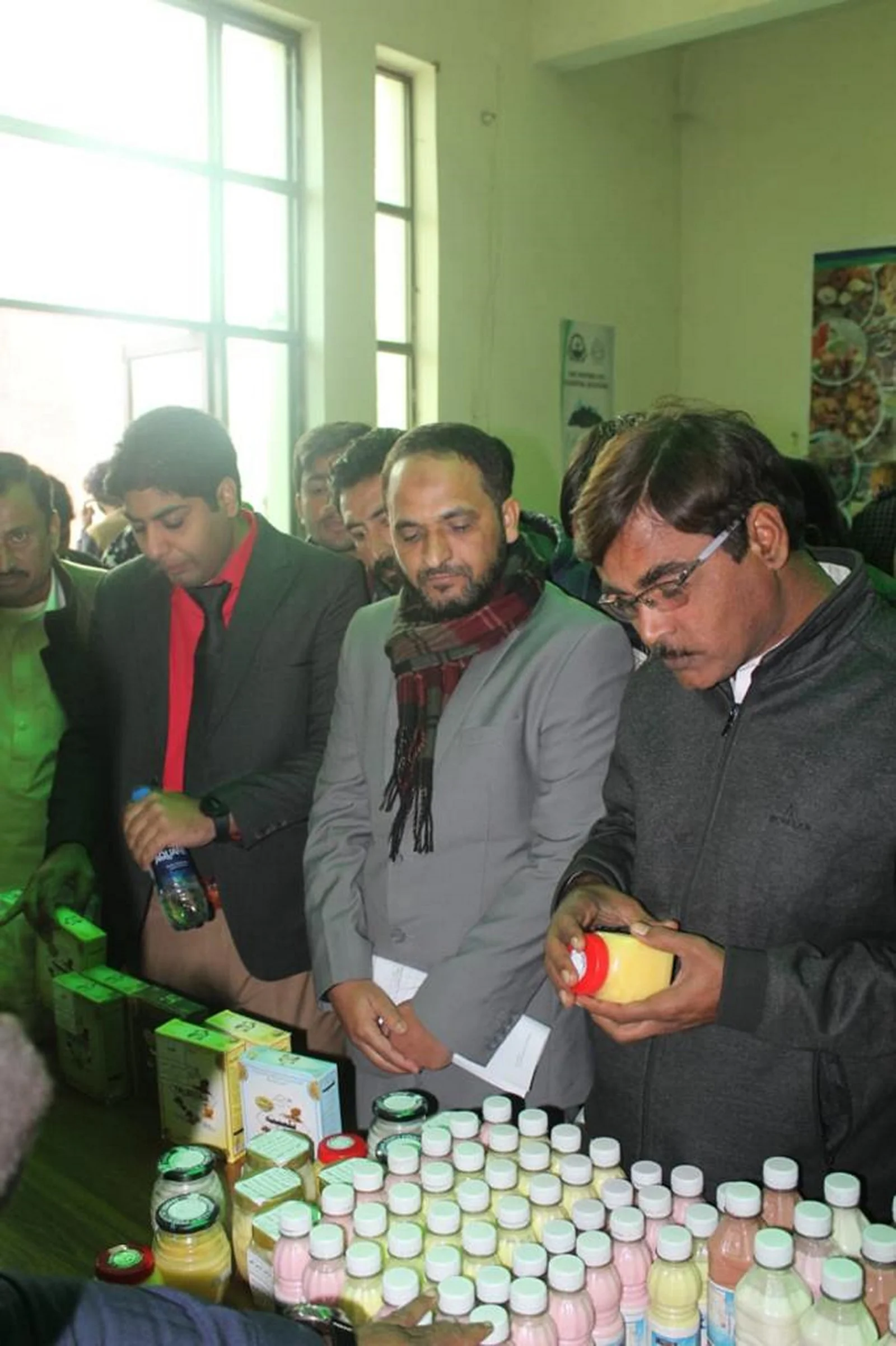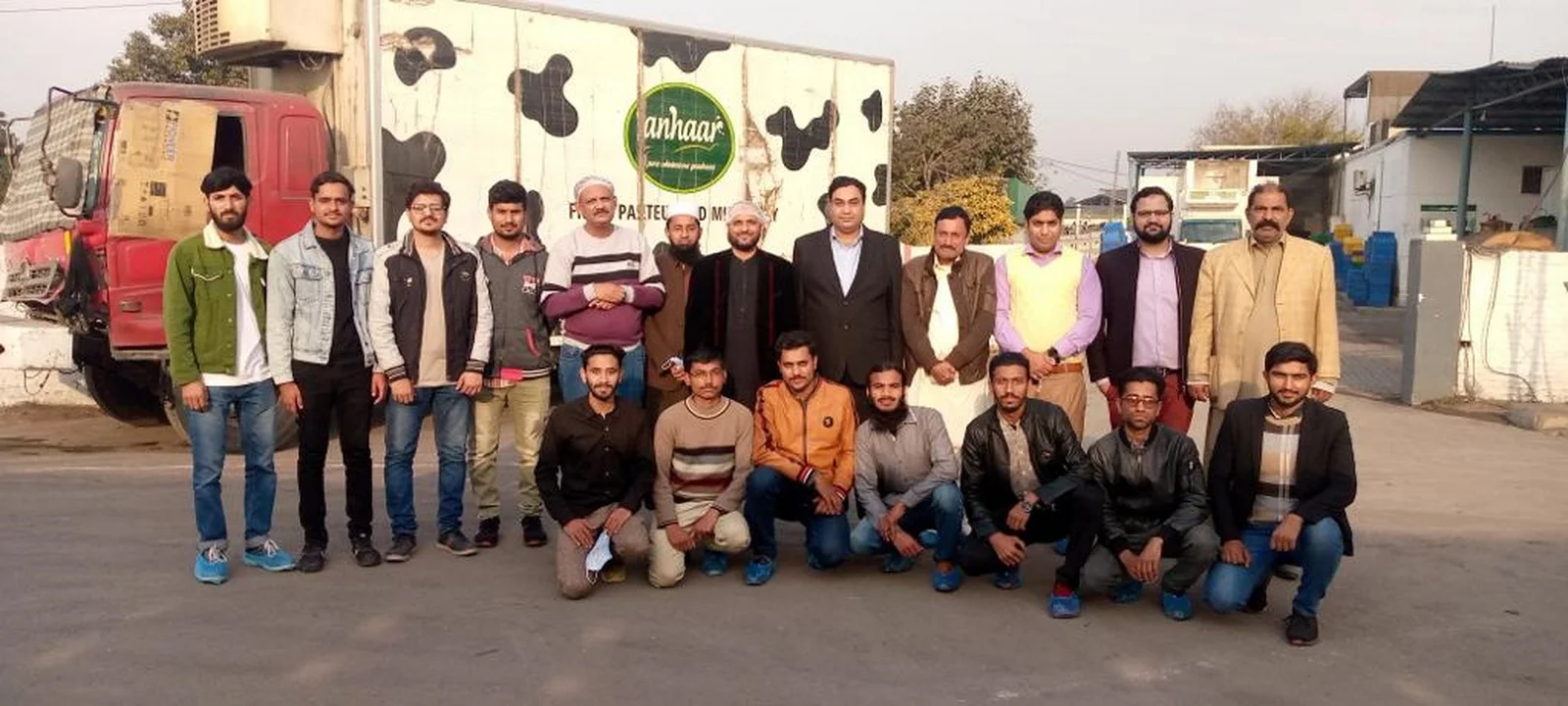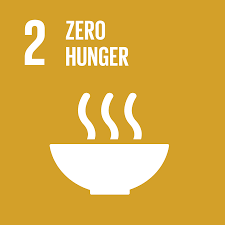Departmental ImpactAccess to local farmers and food producers on food security and sustainable agriculture/aquaculture knowledge, skills/ technology2024Department of Animal Sciences, CVAS Jhang Campus in Collaboration with Department of Dairy Technology organized a three days training session titled "Advanced Milking Practices and Learning Technologies of Pasteurized and Flavored Milk" on 27-29 December 2022 under Capacity Building of Dairy Farmers and Industry Stakeholders on Milk Value Chain". Progressive dairy farmers, potential dairy stakeholders and Final year DVM students of Jhang Campus were the beneficiary of this training. Punjab food authority, RCCIB and persons from Shakargaj Foods aslo participated and talked about different regulations and processing technologies of dairy industry.Local Dairy Industry has also be engaged for visit, display of their relevant equipment and products for demonstration to the participants. Participants also visited Sharif dairy processing unit (Anharr) near Chiniot and Shakargang Collection. A team of students FROM DAIRY SOCIETY launched the Nutrimax flavoued milk for campus students that will be available through vending machines at campus. 


2023Veterinary Teaching Hospital/ Clinics, Department of Clinical Sciences, CVAS Jhang (http://uvas.edu.pk/other_campuses/CVAS/departments/clinical-science/VeterinaryTeachingHospital.htm ) Presented at World Veterinary Poultry Association Congress WVPAC-2019 organized by World Veterinary Poultry Association (WVPA) at Bangkok International Trade and Exhibition Centre, BITEC, Bangkok, Thailand. Partially sponsored through a travel grant by WVPA from 16-20 Sep, 2019. Presented an iPoster at ASM World Microbe Forum on June 20-24, 2021. Sponsored by Health Security Partners (HSP), Washington DC, USA.
|



